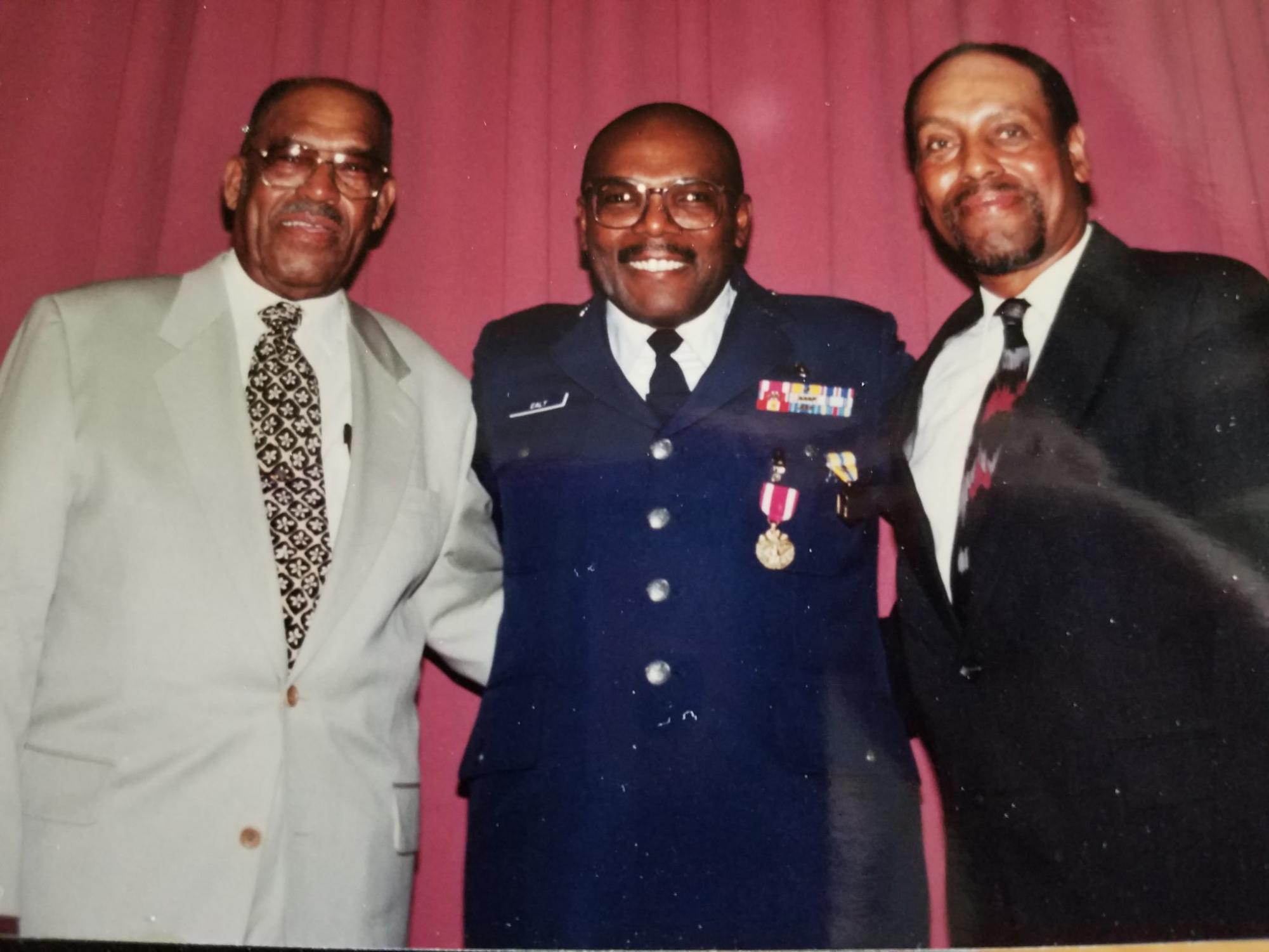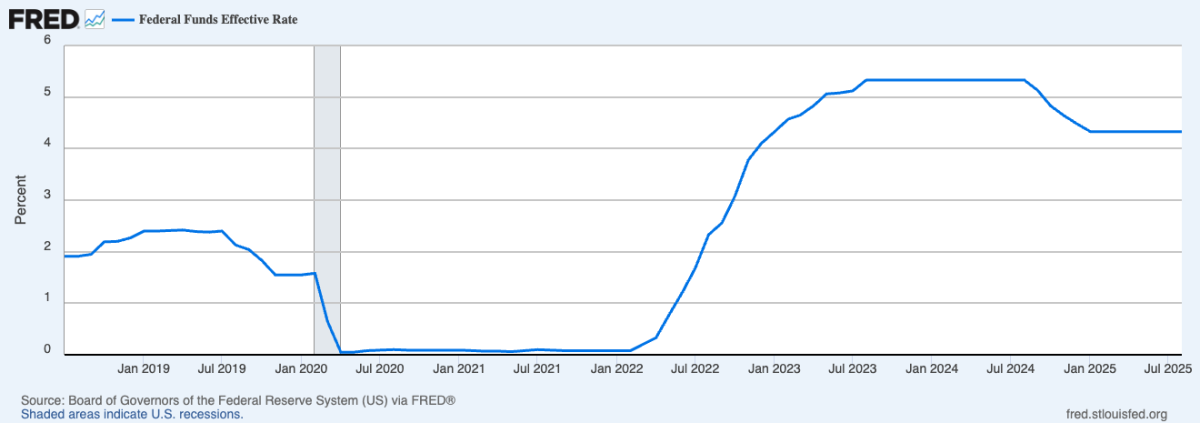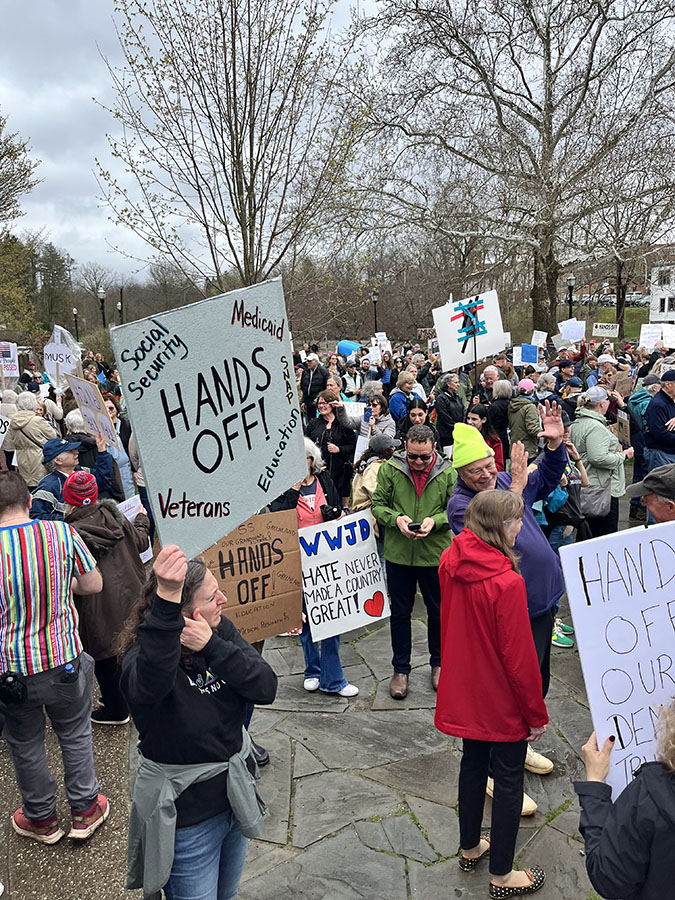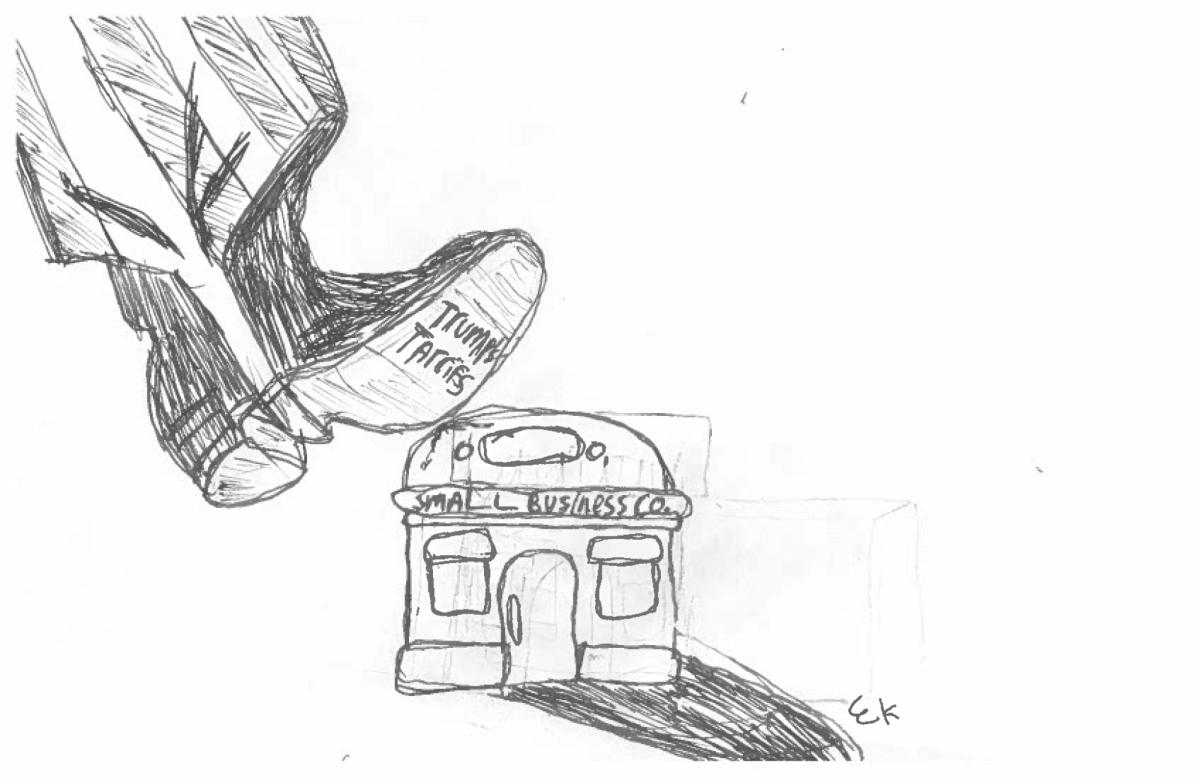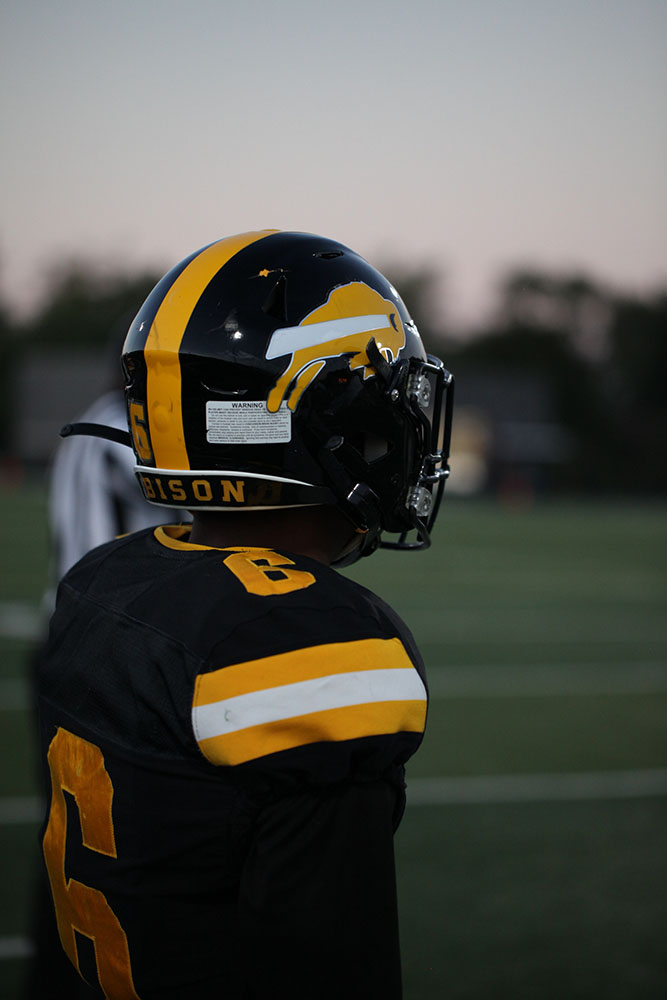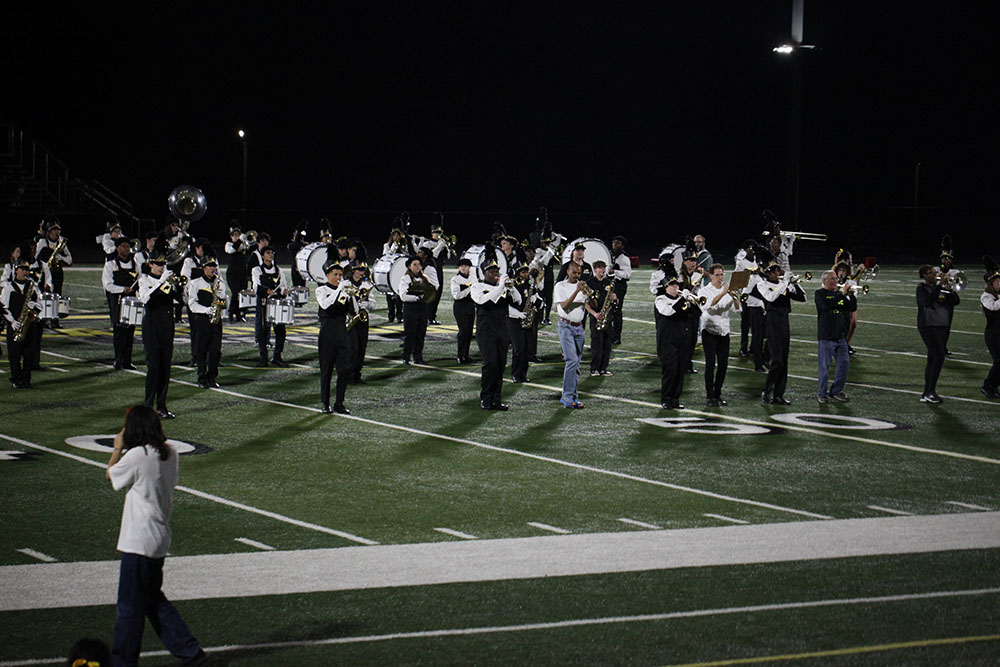Back in February, as I watched Kendrick Lamar’s Super Bowl halftime performance, which explored themes of Black identity, social justice and American power dynamics, I started to think about what it means for Black Americans to be patriotic.
I decided to conduct interviews with my own friends and family to answer these questions on my own. I wanted to find out what it really means to be a Black American, if our definition of patriotism differs by generation and whether or not America is ready to embrace a version of history that truly embraces Black history and culture. Following my interviews, I ultimately found that Black patriotism is a nuanced concept that continues to evolve.
Defining Patriotism
It is important to first establish exactly what patriotism means. Patriotism is defined as “love for or devotion to one’s country.” However, in a New York Times/Siena College Research Institute poll conducted before the 2020 election, only 25% of African American respondents described themselves as “proud” of the state of America today. In fact, almost 7 in 10 Black voters actually described themselves as “angry” at the state of the country during that time.
Most of the people I interviewed subscribed to a textbook definition of patriotism, something along the lines of either a love for one’s country or adhering to and upholding the laws of one’s country.
Two interviewees’ responses deviated from the rest.
Social studies Teacher Felicia Hamiltion gave examples of two different types of patriotism individuals tend to hold.
“I think there are two types of patriotism, [one] is an ethnocentric type of patriotism, where you love your country so much that you are not willing to examine its flaws or hold the country accountable for its values,” she said. “And then there’s a patriotism where you want to love your country and you want the best for your country, and that means that you are willing to be critical when [your country needs it] so that your country can be the best it can be.”
Retired Cleveland educator Terrance Menefee, who is also my father, explained how in his eyes, patriotism is about setting examples for others to be better citizens and strengthening the Black community.
“To me, being patriotic means doing everything that you can as a good citizen to support your country and culture,” he said. “For me, it means being a role model, doing the right thing, being kind, teaching, and using my resources to support causes that uplift my culture so that my people can be better citizens.”
Black Veterans and Patriotism
Black veterans have a complicated history with the idea of patriotism, stretching all the way back to the American Revolution. It is estimated that 5,000 Black soldiers served as patriots in the war, and although among many other factors, a desire for independence was a motivator. These soldiers craved both freedom from enslavement and the colonies’ independence from Great Britain.
Additionally, these Black soldiers made significant contributions to the battles of the American Revolution, as between 10 and 15 Black soldiers, some of them enslaved, fought in the battles of Lexington and Bunker Hill. Additionally, two of these men, Salem Poor and Peter Salem, were recognized for their bravery. However, it is important to acknowledge that many of these Black soldiers were forced to fight in the war.
At first, the Continental Congress did not allow Black soldiers to join the army, but when states began to struggle to fill quotas, they resorted to free and enslaved Black men in New England. Many Black soldiers were never guaranteed freedom, which was ironic, as the Declaration of Independence emphasized the idea of liberty for all men, but did not end slavery. In my opinion, Black soldiers’ role in the American Revolution marked the beginning of our complicated history with patriotism in the United States.
My uncle Gilbert Ealy, who is a retired Air Force General of Health Administration for the Office of the Surgeon General, described how serving in the military has affected his sense of patriotism and unity.
“As a veteran, we are indefinitely bound to the armed forces of the United States, and we take an oath that says we will support and defend The Constitution against all enemies foreign and domestic,” he said.
“Once in the military, some of the problems that persist in [non-military] world diminish, which means when you’re in war it doesn’t matter what color you are or what your racial preferences and influences were growing up, because you have to count on the people next to you in both war and peacetime,” said Ealy. “We function as an integral group, and the successes of the military have been based upon the fact that we honor The Constitution, the law and the man or woman next to us to achieve a [common] goal.”
Black Nationalism during the 19th and 20th Centuries
The enslavement of Black Americans further convoluted their feelings and devotion to the United States. This sentiment is best encapsulated by Frederick Douglass, who explained his lack of patriotism in an 1847 New York Daily Tribune address.
“I have no love for America, as such; I have no patriotism. I have no country. What country have I? The Institutions of this Country do not know me—do not recognize me as a man,” he said.
Hathaway Brown Senior Leyah Jackson detailed how she feels different levels of pride in her separate identities as a Black person and an American.
“I love that I am Black, I wouldn’t want to be anything else,” she said. “American…..depends on the day.”
“I don’t like being associated with the U.S sometimes because when situations like Jan. 6 come up it’s embarrassing; however there are good days where I’m participating in a protest or having a positive conversation with a diverse group about an array of issues where we can both agree and disagree and I sit back and feel a sense of pride and solidarity.”
However, Jackson explained how she feels strength and pride from the fusion of her Black and American identities.
“Now, when those identities collide–I think [I do feel a sense of pride being both Black and American],” she said. “As African Americans we have created a rich history and culture for ourselves. We continue to make something out of the nothing we get everyday.”
On the other hand, Menefee explained why he feels a sense of patriotism in being both Black and American.
“My grandfather fought for this country, so I’ve never felt that it wasn’t mine, but I’ve also felt like I haven’t had equal access like my white counterparts,” he said. “I’ve had to fight and work hard for my accomplishments, specifically as a Black man with a doctorate degree.”
Menefee also described how he navigated his way through many issues that the Black community faced during the ‘80s and ‘90s, including racism and increased surveillance by law enforcement.
Kamaria Majors, a 26 year old graduate from Elon University, echoed a similar sentiment to Jackson.
“I think I take a lot of pride in being Black, but I struggle with taking pride in being American because I tend to take my privilege that comes with being an American-born citizen for granted,” she said.
Majors described how she often focuses on many of the negative aspects of being American, which makes it difficult for her to feel patriotic.
In fact, during the 19th century, the treatment of Black Americans was so appalling that it led to the creation of the Black nationalist movement.
Nationalism, which is not to be confused with patriotism, is defined as “an ideology that elevates one nation or nationality above all others and that places primary emphasis on promotion of its culture and interests as opposed to those of other nations, nationalities, or supranational groups.”
Abolitionist Martin Delany advocated for the exodus of northern free Black Americans to Africa to assist native Africans with building their nations. He also claimed that this would benefit Black Americans in the United States, referring to them as “a nation within a nation…really a broken people.”
During the 20th century, even after abolition of slavery with the ratification of the 13th Amendment, the Black nationalist movement still gained significant momentum. This was largely due to the efforts of nationalists such as Marcus Garvey, who also advocated for the emigration of Black Americans to Africa and founded the United Negro Improvement Association (UNIA).
In his essay “The Future as I See It,” Garvey stated that UNIA was “organized for the absolute purpose of bettering our condition, industrially, commercially, socially, religiously and politically.”
The UNIA also strove to establish Black-owned business, which resulted in the creation of the Black Star Line, invented to ship goods and people to Africa. However, after Black investors attempted to buy Black Star Line stock, the UNIA’s commercial ventures crashed and Garvey was convicted of mail fraud and deported back to Jamaica.
Malcom X, another prominent Black nationalist and chief recruiter of the Nation of Islam, criticized well-known civil rights leaders and advocated for the racial independence, self-defense, and self-determination of Black people. X was assassinated in 1965.
The 1960s also saw the rise of the Black Panther Party for Self-Defense (BPP), founded by Oakland native Huey P. Newton and Bobby Seale. The BPP championed Black nationalism, socialism, and armed self-defense, specifically against police brutality.
The BPP was one sector of the Black Power Movement, a revolutionary movement during the 1960s and 1970s that deviated from the nonviolent protests and strategies of the Southern Christian Leadership Conference (SCLC) and Dr. Martin Luther King Jr. The Black Power Movement also promoted a larger embrace of Black culture, more Black history courses in schools, racial pride, economic empowerment and the creation of political institutions. Black women also played a large role in the Black Power Movement, as they labored to bring awareness to issues such as sexism, classism, gender identity and racism.
Black Constructive Patriotism During the 20th Century
While it is important to acknowledge the role that Black nationalism played during the 19th and 20th centuries, we must also consider what political psychologists refer to as “constructive patriotism” during the 1900s. According to the journal Advances in Political Psychology, constructive patriotism is defined as “an attachment to country characterized by support for questioning and criticism of current group practices that are intended to result in positive change.”
During the 20th century, this manifested itself through intellectual, artistic, and cultural expression during the Harlem Renaissance, which challenged deep-rooted racist ideals, increased voter social and political power through Black churches and groups such as the National Association for the Advancement of Colored People (NAACP), and even Black military service in both World Wars and others. As African-American writer and civil rights activist James Baldwin wrote in his Notes of a Native Son, “I love America more than any other country in the world, and, exactly for this reason, I insist on the right to criticize her perpetually.”
BHS Sophomore Maverick Edwards and my grandfather, retired county worker Paul Ealy shared their perspectives on American patriotism, each grounding their pride in specific values.
“I feel a sense of pride in both [my identity and my country], but the question you have to ask yourself when it comes to being an American is “what does it truly mean to be an American?” Edwards asked. “It’s a really difficult question to answer because America is diverse and there is no established identity to being an American, but I feel a sense of pride for what America stands for as far as democracy and diversity.”
“I feel a sense of pride in what America used to stand for…when people had morals and cared about our country,” Ealy said.
Jackson feels that advocacy and activism are forms of patriotism often exhibited by Black Americans.
“I equate patriotism to activism, because I feel like if you consider yourself a patriot and truly love your country, you would want to better it,” said Jackson.
Black Patriotism from 1990-Present Times
A 1990 article in the New York Times explored the feelings of Black Americans going into the new decade. According to the article, “Most polls report few important differences in how Black and White Americans described their feelings about their country.”
However, during the ‘90s, Black Americans disproportionately faced issues such as poverty, unemployment, drug abuse, racial profiling and police brutality, most memorably through the infamous beating of Rodney King. These issues continued to plague Black communities through the 21st century, eventually leading to the rise of the Black Lives Matter Movement, which reached its peak following the murder of George Floyd in 2020.
Hamilton explained how she believes that Black Americans are expected to prove their patriotism in ways that others are not.
“Black people are often put in a position where they have to prove they’re patriotic in this narrow, mainstream way, like respecting the flag in a very specific sense,” she said. “Take Colin Kaepernick kneeling, which was seen as disrespectful to the flag, but in reality, it was a powerful example of patriotism, using his platform to call for justice.”
Hamilton also described how oftentimes, even when Black Americans participate in a traditional form of American patriotism, they are criticized.
“The irony is, even when Black people do perform this mainstream version of patriotism, they’re still critiqued,” she said. “[Following Beyoncé’s Christmas Day halftime show], people said things like, ‘She can’t do country,’ or ‘She can’t critique the country and still show pride in it,’ but the truth is, it’s multifaceted and you can do both.”
Edwards explained how he believes Black Americans should go against the status quo of what is expected of them in order to demonstrate their patriotism, giving the example of Kendrick Lamar’s 2025 Super Bowl Halftime Show.
“I think that the [prevailing] idea for Black people is to not express themselves or be self-advocates in today’s America,” he said. “However, I would also say that Black people have to show their Black patriotism in ways that can not be retaliated against, as we unfortunately live in the world where Black people aren’t equal and have to face the societal stereotypes about being “too ghetto” or “too loud”, hence the symbolism of Uncle Samuel Jackson from Kendrick Lamar’s Super Bowl Show.”
Additionally, all interviewees agreed that older generations of Black Americans view patriotism differently than younger generations.
“I think the difference is that older generations are still, to some degree, seeking full acceptance and recognition from this country for their contributions and achievements,” Ealy said. “[Younger generations] are more vocal and more assertive in making their case to the country, and movements like Black Lives Matter and increased activism on college campuses reflect that shift.”
“I think people who lived through the Civil Rights Movement often view Black patriotism differently than we do,” said Majors. “We’re looking at it through the lens of, “This is what happened before, and here’s how it’s shaping what we’re experiencing now,” but older generations actually lived through that shift.”
“Especially for those who had traumatic experiences during that time, their relationship to patriotism runs much deeper,” she said. “I think expressing Black patriotism is difficult no matter your age, but the way it shows up varies between older and younger generations.”
Paul Ealy, who was born in Youngstown Ohio in 1949, shared that he doesn’t believe that younger generations properly understand American values.
“[Younger] people don’t get it,” he said.
“Get what?” I asked.
“What America is all about,” he answered.
“And what is America all about?”
“Decency and morals.”
I concluded my interviews by inquiring if the interviewees believe that America is ready to embrace a version of patriotism that fully includes Black history and struggles. The interviewees did not.
“Even if you look into the realm of politics you see people trying to decrease the amount of Black history taught in schools,” said Morris. “Moreover, Black America has to force America to accept the truth about American history and how it correlates to [the struggles of] Black history because Black history is American history.”
This resistance isn’t hypothetical. On March 28, President Trump introduced an executive order calling for the removal of specific artifacts from the Smithsonian National Museum of African American History and Culture.
According to The Guardian, “…The president said there had been a “concerted and widespread” effort over the past decade to rewrite US history by replacing “objective facts” with a “distorted narrative driven by ideology rather than truth.”
Trump’s attack on the museum sparked controversy and was met with outrage from many, with the #HandsOffOurHistory movement protesting in Washington D.C and individuals joining forces to devise conservation tactics.
“With the president we have and the state we’re in, I doubt it,” said Jackson. “More than half of America doesn’t understand let alone acknowledge black history and struggles, and they’re trying to remove black history from curriculum and ban books.”
Despite this, Jackson still holds on to a glimmer of hope in the future of the country, given progress in recent decades.
“I am still positive, especially with things like Juneteenth [becoming a federal holiday], the success of the Black Lives Matter Movement, and The CROWN Act.”


